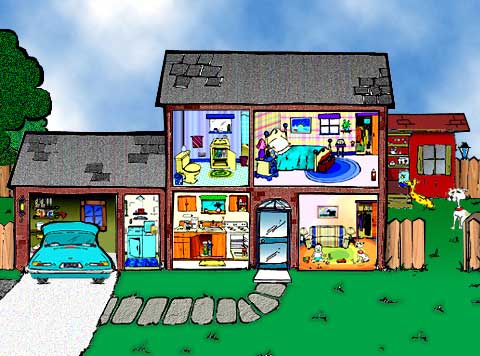As with any product or service that you might buy there are different levels of choice and quality. But although people are fond of quoting the old adage “you get what you pay for” most consumers now recognise that is not always the case – take for instance the proliferation of die-hard high-end supermarket customers now regularly doing part of their weekly shop at a well-known small German supermarket. Many a food snob is now singing the praises of those items with labels they would not have recognised a year ago.
And the same is true of self storage – there are those well-known companies that by dint of marketing hype persuade customers they are getting a great deal but when you look more closely at costs and features it starts to become clear that there are better deals to be had with the smaller facilities. If you do subsequently find you could get a better deal elsewhere never fear – you may not have the hassle of moving all your stuff from one provider to the next, as some offer a free collection and delivery service so will do all the lifting and carrying for you.
So as with supermarkets it really pays to shop around, but whatever self storage provider you choose in the end there are some essential things you should check before signing on the dotted line:
Site Security
Expect your belongings to be stored on a secure site with CCTV cameras and controlled access. Many facilities, in fact, have better storage than the average home but it always pays to check.
Unit size by volume
Most self storage sites offer a variety of units in different sizes but when comparing unit sizes and costs don’t just look at the floor area – remember boxes and other items can be stacked so a relatively small floor area that is 2 or more metres high will take a lot more than you may think.
Your own private space
Always ensure that only you have access to the storage space you are paying for. Self storage facility owners should not possess a copy of the key or a master key – one of the reasons it makes sense to purchase your own padlock.
Good ventilation
Moisture is the commonest cause of damage to items held long-term in storage so make sure your storage unit is well-ventilated. For very precious items it may make sense to invest in a climate controlled unit.
Insurance
Check first whether your household or business insurance covers your possessions in a self-storage unit – many do – or, if not, an extension to your policy can be made for minimal cost. This is usually the cheapest way to insure items in storage. Self-storage facilities do offer insurance but check their rates against others before committing.
Ease of Access
Some storage units are up several flights of stairs – fine if you benefit from a cheap rate and only have to cart up the occasional small box, but not fine if you are storing furniture or large, awkward or heavy items. So check the access before committing to the contract. If you are storing vehicles or furniture look out for direct drive up access to make your life easier.

